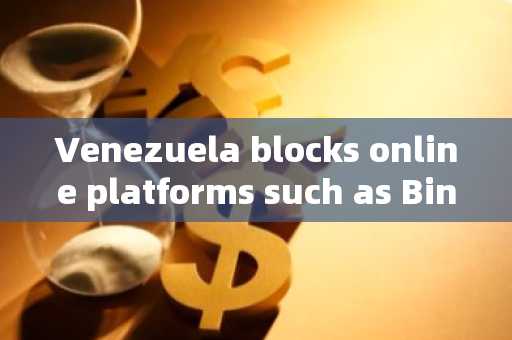Venezuela blocks online platforms such as Binance due to election disputes, Binance responds: funds
Due to the controversy surrounding this year's presidential election, the Venezuelan government has reportedly blocked access to cryptocurrency exchange Binance, social media platform X, and other online services.

The local anti censorship organization VE sin Filtro announced on the X platform on August 9th that they have detected a DNS blockade against the cryptocurrency exchange Binance, which has affected the normal operation of its website and mobile applications in Venezuela.
The next day, Binance's Latin American community account also posted on X stating:
Like many company websites in other industries in Venezuela, Binance pages also face access restrictions
In addition, Binance guarantees the safety of its users' funds and is closely monitoring the situation to respond as quickly and effectively as possible. VE sin Filtro suggests that Venezuelan users use VPN to bypass the blockade.
Compared to other countries, Binance's peer-to-peer (P2P) service is very popular in Venezuela because local residents are willing to exchange cash for cryptocurrency through the service to combat the growing inflation problem.
The blockade of Binance occurred on August 9th, after Venezuelan President Nicolas Maduro ordered telecommunications regulatory agency Conatl to block access to X nationwide in a televised speech. According to Reuters, Maduro and X's boss Elon Musk have recently had a public dispute over the election, with both sides even openly accepting the challenge of a duel with each other.
Widespread protests erupted in Venezuela after the presidential election on July 28th, as Maduro and his opponent Edmundo Gonzalez both claimed victory. The government controlled electoral institution announced that Maduro won with slightly over 51% of the vote, but did not release detailed voting data. Gonzalez claimed that the voting machine print data collected by his party showed that he actually won with nearly 70% of the vote.
The United States, the European Union, the United Kingdom, and several South American countries are currently refusing to recognize Maduro as president and demanding that Venezuela disclose detailed voting results.
